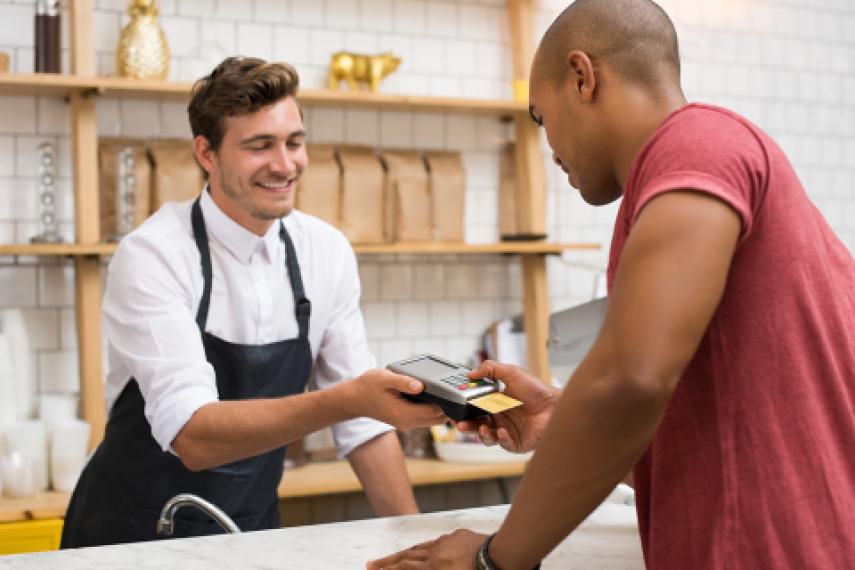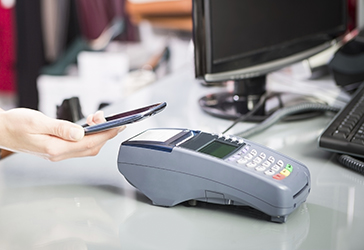
A cash-free world might be on its way sooner than you think. Cash is now used in only 12% of in-store transactions in the United States. Additionally, 81% of shoppers prefer to pay with cards over cash. This trend is further supported by the fact that 214.9 million Americans (82% of adults) have a credit card account in their name.
The shift toward cashless transactions gained momentum during the COVID-19 pandemic as retailers and consumers prioritized 'touchless' payments for safety. Even as the pandemic recedes, the adoption of digital payments continues to grow. Services like PayPal, Zelle, Venmo, and Apple Pay have become integral to everyday transactions.
A cashless society is no longer a matter of 'if' but 'when.'
What Does 'Cashless' Mean?
A cashless system is one where transactions are conducted entirely electronically, without the use of physical currency. Common methods include:
- Point of Sale (POS) systems
- Internet banking
- Mobile banking
- Credit and debit cards
- Digital wallets and apps like Apple Pay, Google Pay, and Venmo
Benefits of Going Cashless
Switching to electronic payments offers numerous advantages for individuals, businesses, and even governments:
1. Reduction of Illegal Transactions
Electronic payments create a digital trail, making it easier to detect and prevent illegal activities, such as money laundering or black-market trades. The transparency of digital payments can significantly reduce crime.
2. Easier International Payments
Currency exchange at forex bureaus can be time-consuming and costly. A cashless system simplifies international payments by enabling seamless transfers and payments across borders without the need for physical currency exchange.
3. Lower Cash Management Costs
Printing, distributing, and safeguarding physical currency is expensive. Eliminating these costs benefits governments, businesses, and consumers.
4. Reduced Operating Expenses
Businesses can save money by reducing the need for cash handling, such as training employees to use cash registers, managing tills, and securing physical money. Digital payments streamline operations and reduce overhead.
5. Enhanced Security
Cash theft remains a significant issue, with banks alone losing $500 million to robberies annually in recent years. A cashless system minimizes the risks associated with physical cash.
6. Better Customer Experience
Electronic transactions are faster than cash payments, reducing wait times and increasing efficiency at checkout. This improves the overall customer experience.
7. Easier Budgeting and Financial Tracking
Digital transactions leave an automatic record, making it easier for individuals and businesses to track spending, analyze financial habits, and manage budgets. Many banking apps now offer tools to help users understand their expenses.
8. Elimination of Lost Cash
Physical money can be lost or stolen. Digital payments ensure your funds are secure as long as your accounts are protected. Even if a device is misplaced, you can block transactions remotely.
How to Go Cashless
For Individuals
Here’s how you can transition to a cash-free lifestyle:
- Choose a digital-friendly bank: Opt for banks with robust mobile apps and online banking services.
- Link your accounts: Connect your credit and debit cards to your digital wallets.
- Use payment apps: Download platforms like Venmo, PayPal, and Zelle for seamless peer-to-peer transfers.
- Set up direct deposit: Ensure your income is deposited directly into your account.
- Automate payments: Convert recurring bills to electronic payments.
- Be prepared for cash-only vendors: Keep a small amount of cash for emergencies or vendors that don’t accept digital payments.
For Businesses
Businesses play a critical role in advancing cashless systems. Here’s how to adapt:
- Offer multiple payment options: Integrate platforms like CashApp, Square, and PayPal at checkout.
- Join rewards programs: Partner with payment providers offering rewards for electronic transactions.
- Enhance security: Use encrypted systems to build customer trust and discourage fraud.
- Digitize operations: Shift from physical cash registers to cloud-based POS systems for seamless operations.
The Bottom Line
A cashless society is no longer a distant concept—it’s an approaching reality. While this shift offers numerous benefits, such as convenience, security, and cost savings, it requires collective effort from individuals, businesses, and governments.
As digital payments become the norm, staying informed about security best practices is essential. Whether you’re using cards, mobile wallets, or digital platforms, protecting your financial information is more critical than ever.
The cashless future is coming—are you ready to embrace it?





